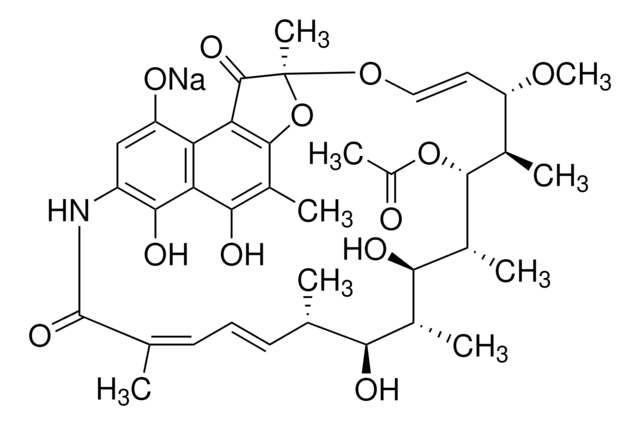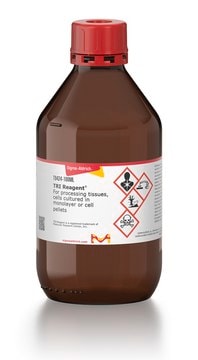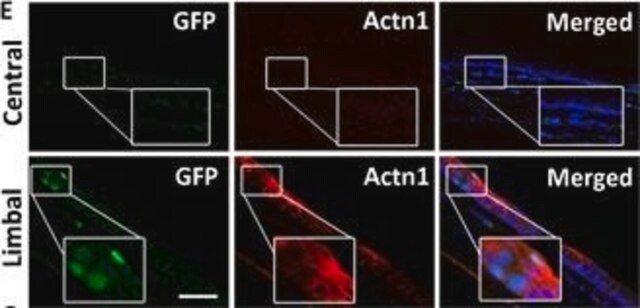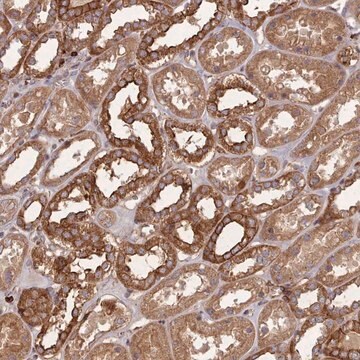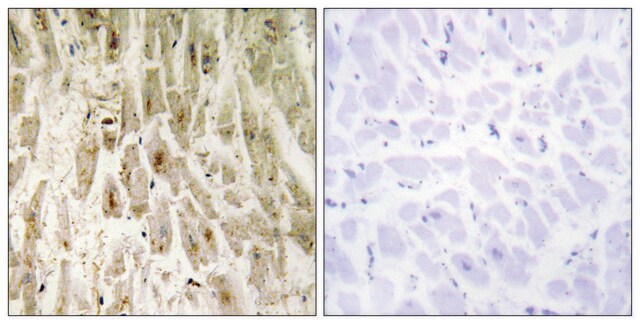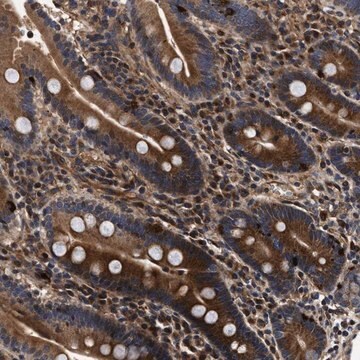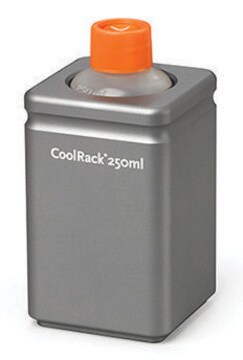HTS139RTA
Ready-to-Assay sst 5 Somatostatin Family Receptor Frozen Cells
Human
Iniciar sesiónpara Ver la Fijación de precios por contrato y de la organización
About This Item
UNSPSC Code:
41106514
eCl@ss:
32011203
NACRES:
NA.76
Productos recomendados
product name
Ready-to-Assay sst 5 Somatostatin Family Receptor Frozen Cells,
biological source
human
Quality Level
manufacturer/tradename
Ready-to-Assay
technique(s)
calcium flux assay: suitable
NCBI accession no.
detection method
fluorometric
General description
Millipore′s Ready-to-Assay GPCR frozen cells are designed for simple, rapid calcium assays with no requirement for intensive cell culturing. Millipore has optimized the freezing conditions to provide cells with high viability and functionality post-thaw. The user simply thaws the cells and resuspends them in media, dispenses cell suspension into assay plates and, following over night recovery, assays for calcium response.
Somatostatin (sst) is a multifunctional peptide with two biologically active forms, sst-14 and sst-28, which are synthesized in neurons throughout the brain as well as in peripheral tissues such as the pancreas and the gut (Gillies, 1997). SST exerts a diverse array of effects that include inhibition of endocrine secretion, modulation of neurotransmission, and regulation of cell proliferation by stimulating a family of five G-protein-coupled receptors. Somatostatin receptor sst5 is an inhibitory G protein-coupled receptor that exerts a strong cytostatic effect on various cell types. In mice, sst5 mediates somatostatin inhibition of pancreatic insulin secretion and contributes to the regulation of glucose homeostasis and insulin sensitivity (Strowski et al., 2003). In addition, deficiency of sst5 leads to subtype-selective sexually dimorphic changes in the expression of both brain and pancreatic somatostatins (Ramirez et al., 2004). Millipore′s cloned human sst5-expressing cell line is made in the Chem-1 host, which supports high levels of recombinant sst5 expression on the cell surface and contains high levels of the promiscuous G protein Gα15 to couple the receptor to the calcium signaling pathway. Thus, the cell line is an ideal tool for screening for agonists, antagonists and modulators at sst5.
Somatostatin (sst) is a multifunctional peptide with two biologically active forms, sst-14 and sst-28, which are synthesized in neurons throughout the brain as well as in peripheral tissues such as the pancreas and the gut (Gillies, 1997). SST exerts a diverse array of effects that include inhibition of endocrine secretion, modulation of neurotransmission, and regulation of cell proliferation by stimulating a family of five G-protein-coupled receptors. Somatostatin receptor sst5 is an inhibitory G protein-coupled receptor that exerts a strong cytostatic effect on various cell types. In mice, sst5 mediates somatostatin inhibition of pancreatic insulin secretion and contributes to the regulation of glucose homeostasis and insulin sensitivity (Strowski et al., 2003). In addition, deficiency of sst5 leads to subtype-selective sexually dimorphic changes in the expression of both brain and pancreatic somatostatins (Ramirez et al., 2004). Millipore′s cloned human sst5-expressing cell line is made in the Chem-1 host, which supports high levels of recombinant sst5 expression on the cell surface and contains high levels of the promiscuous G protein Gα15 to couple the receptor to the calcium signaling pathway. Thus, the cell line is an ideal tool for screening for agonists, antagonists and modulators at sst5.
Cell Line Description
- GPCR Cell Lines
- Host cells: Chem-1
Application
Human sst5 GPCR frozen cells for Calcium Flux FLIPR Assays.
Biochem/physiol Actions
- GPCR Class: A
- Protein Target: sst5
- Target Sub-Family: Somatostatin
Components
Pack contains 2 vials of mycoplasma-free cells, 1 ml per vial. Fifty (50) mL of Media Component.
Disclaimer
This product contains genetically modified organisms (GMO).
Within the EU GMOs are regulated by Directives 2001/18/EC and 2009/41/EC of the European Parliament and of the Council and their national implementation in the member States respectively.
Storage Class
10 - Combustible liquids
wgk_germany
WGK 1
flash_point_f
Not applicable
flash_point_c
Not applicable
Certificados de análisis (COA)
Busque Certificados de análisis (COA) introduciendo el número de lote del producto. Los números de lote se encuentran en la etiqueta del producto después de las palabras «Lot» o «Batch»
¿Ya tiene este producto?
Encuentre la documentación para los productos que ha comprado recientemente en la Biblioteca de documentos.
Nuestro equipo de científicos tiene experiencia en todas las áreas de investigación: Ciencias de la vida, Ciencia de los materiales, Síntesis química, Cromatografía, Analítica y muchas otras.
Póngase en contacto con el Servicio técnico